Lighting fires and permits
Fire pits Fires on beaches Do I need approval? Roles and responsibilities
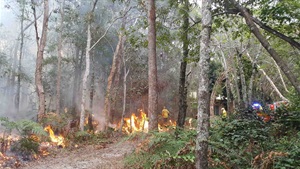
There are big penalties if you light an illegal fire, or if your fire escapes and causes damage to property or the environment.
Call 000 to report a fire, Council rangers cannot attend to fires. View who to contact for different situations.
Council is not the authority in emergencies. Contact the NSW Rural Fire Service for bushfire alerts and advice or visit the Emergency Dashboard.
Read more about bushfires.
Bushfire danger period 1 September to 31 March
Lighting a fire on your property
If you’re planning to light a fire on your property contact the following agencies to make sure you meet requirements:
- Tweed Shire Council (Environmental Health team)
- Fire and Rescue NSW or the NSW Rural Fire Service (depending on where you live)
When can fires be lit outside?
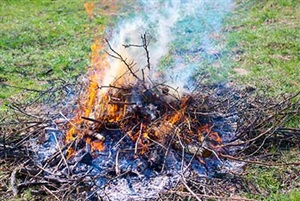
In the Tweed you must not light a fire outdoors, unless you are:
- lighting a fire for cooking or recreation (e.g. camping)
- burning vegetation for agricultural purposes (e.g. cane burning)
- hold an approval from Council and permit from NSW Rural Fire Service or Fire and Rescue NSW
- carrying out a hazard reduction burn under the Rural Fires Act 1997 (with a hazard reduction certificate issued by the Rural Fire Service).
If you meet the conditions above and you’re planning a fire, talk to your neighbours first (24 hours’ notice is required). Be considerate, smoke can cause breathing difficulties for some people.
For the key things to remember before you light a fire, head to the Rural Fire Service website
Outdoor fire pits
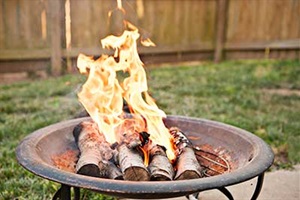
Open air fires are not permitted during a total fire ban.
Outdoor fire pits, braziers and chimeneas are allowed as long as you use solid fuel (such as dry wood, charcoal or heat beads). Be considerate of your neighbours and avoid smoke nuisance.
Fires on beaches
Council does not permit the lighting of fires on Council controlled land, this includes beaches.
Council does not permit the collection of firewood within bushland areas. This includes collection of dead fallen timber or cutting dead branches from trees.
When do I need to apply to Council for approval to burn?
Council’s burning approval is only for the disposal of dead and dry vegetative material through pile burning.
You need Council approval for pile burning.
You may also need a permit from your local fire service.
Council approval
Considers clean air, environmental regulations and impacts on neighbours.
Fire permit
The fire service considers safety and the way a fire is lit and controlled.
Council approval is required before the fire service will issue a permit.
Generally fires are not supported in urban areas such as towns and villages due to clean air regulations.
Fire permits are issued by Fire and Rescue NSW or NSW Rural Fire Service, depending on where you live.
If you live in a Fire and Rescue NSW district you need a fire permit all year round.
How do I apply for a fire permit?
All fire permits are suspended during a total fire ban and open fires are banned.
Before you apply, consider other alternatives like mulching or taking green waste to the Stotts Creek Resource Recovery Centre for composting.
First call our Environmental Health team on 02 6670 2400 to find out if you meet the requirements. Note application fees are non-refundable.
Apply online - burn vegetation
Council approval is not a fire permit, you will also need to contact your local fire station for a fire permit.
Check if you’re in a Fire and Rescue NSW area or Rural Fire Service NSW area by contacting your local fire station. Ask them if you need a fire permit. If so, you will need to show your Council approval. There is no cost for a fire permit.
Roles and responsibilities
Tweed Shire Council
 Council is not the main authority in fire emergencies, but does have a role in:
Council is not the main authority in fire emergencies, but does have a role in:
- approvals for pile burning on rural property (fire permit may also be required)
- maintenance of Council Asset Protection Zones, fire trails and roadsides to mitigate bushfire risk
- enforcing clean air regulations
- community education
- updating the Emergency Dashboard
- assessing overgrown land complaints (and referring to the Rural Fire Service if there is a bushfire risk)
- hazard reduction burns on Council land
- informing land owners about their land management responsibilities.
Council rangers and officers cannot attend to fires.
NSW Rural Fire Service
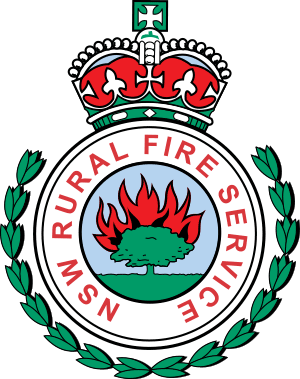
NSW Rural Fire Service are the lead agency for bushfires in NSW and manage:
- fire permits in rural areas
- fire warning systems, rescues, evacuations
- fire bans and regulations for bushfire prone areas
- local brigade response
- advising and assisting property owners with bushfire hazard reduction requests
- community education
- fire maps and advice during bushfire events.
Fire and Rescue NSW
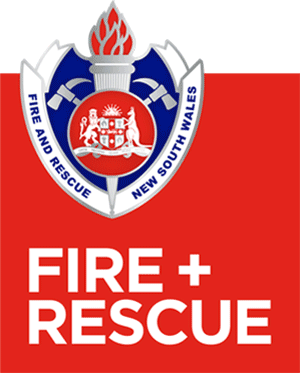
NSW Fire and Rescue respond to structure fires in urban areas and manage:
- fire permits in urban areas
- emergencies involving fire, motor vehicle accidents and other dangerous situations
- inspection services and advice on fire safety for all types of buildings
- hazardous materials emergencies and building collapse
- community education.
Who to contact
Council rangers cannot attend to fires.
Air pollution
Council is responsible for enforcing clean air regulations. We’re all responsible for minimising air pollution.
See the NSW Government's air quality alerts.